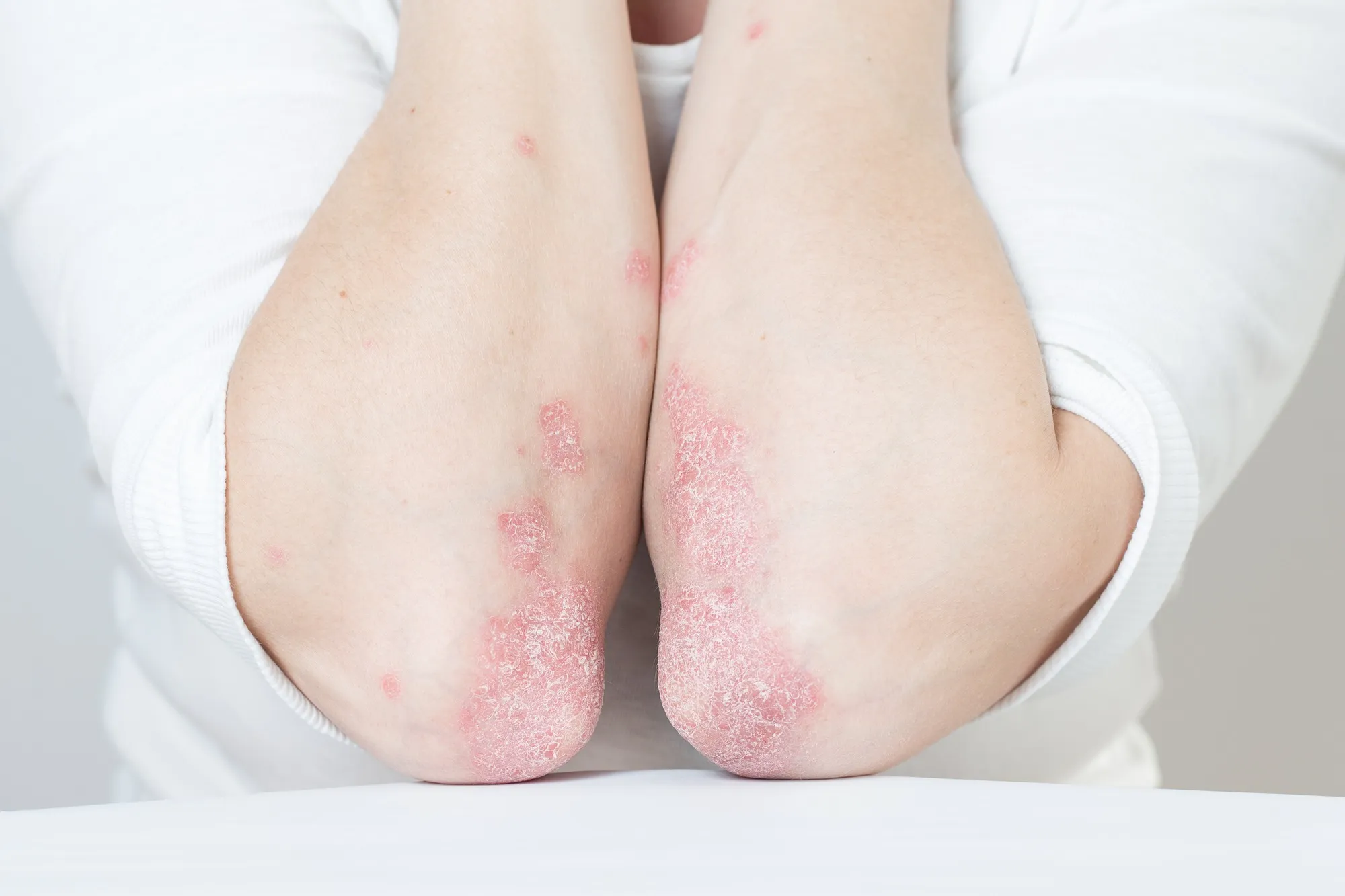
Psoriasis is a chronic skin disease characterized by the rapid turnover of skin cells that cause the appearance of dry, red patches on the skin. This condition can cause discomfort, itching, and sometimes pain. Psoriasis occurs on various body parts, including the scalp, elbows, and lower back, but it may also appear on the face, palms, and soles of the feet. The severity of the condition varies from mild to severe, with symptoms that may come and go in cycles. While the root cause of Psoriasis is not yet fully determined, it is believed that it is associated with an immune system problem that triggers inflammation and the overproduction of skin cells. Treatments for Psoriasis include topical therapies, phototherapy, and systemic medications. Topical treatments often include corticosteroids, vitamin D analogs, and retinoids that help reduce inflammation and slow down skin cell production. Meanwhile, phototherapy, or light therapy, uses ultraviolet light to slow skin cell growth. Lastly, systemic medications, taken orally or by injection, may include immunosuppressants or biologics targeting specific parts of the immune system.
Psoriasis affects individuals of all ages, though it is most commonly diagnosed in adults. It can greatly affect a person’s well-being, causing emotional and psychological distress due to the visible nature of the skin lesions. When seeking treatment, patients can expect an initial consultation to assess the severity of their condition and discuss the most appropriate treatment plan. Moreover, the duration of treatment varies depending on the type and severity of the condition. Topical treatments may need to be applied daily, while phototherapy sessions typically occur several times a week. On the other hand, systemic treatments require regular monitoring by a healthcare provider to manage any potential side effects. With consistent treatment, many patients experience significant improvement in their symptoms, leading to clearer skin and a better quality of life. If you are dealing with Psoriasis, Book an appointment at Omega Health Clinics in Modesto, CA, to explore the best treatment plan for your needs.
Various factors, including stress, infections, skin injuries, certain medications, and weather changes, can trigger psoriasis flare-ups. Cold, dry weather can worsen symptoms, while warm, sunny conditions may help improve them. Some people also experience flare-ups due to smoking, excessive alcohol consumption, or changes in their diet. Identifying and avoiding these triggers can help regulate the condition more effectively.
Psoriasis is not contagious. You cannot catch Psoriasis from another person through physical contact, sharing personal items, or exposure to the same environment. Psoriasis is an autoimmune condition that involves a malfunction in the body’s immune system, leading to the rapid production of skin cells. It is not caused by an infection or any external factors that could be passed from one person to another.
Diet can play a big role in dealing with Psoriasis. While no specific diet cures Psoriasis, certain dietary choices may help reduce inflammation and improve skin health. Foods high in omega-3 fatty acids, such as fish, flaxseeds, and walnuts, have anti-inflammatory properties that may benefit people struggling with the condition. Additionally, maintaining a normal weight and avoiding processed foods, alcohol, and excessive sugar may reduce the frequency and severity of flare-ups.
Psoriasis can significantly impact mental health, as it can cause insecurity, anxiety, and depression. The visible nature of the skin condition can cause self-consciousness and social isolation. Managing the psychological effects of Psoriasis is just as important as treating the physical symptoms. Support from healthcare professionals, counseling, and support groups is helpful to patients who are struggling with the emotional aspects of the condition.
Psoriasis is associated with several other health conditions. The most common comorbidity is psoriatic arthritis, which affects about 30% of people with Psoriasis. Psoriasis also increases the risk of cardiovascular diseases, type 2 diabetes, and metabolic syndrome. Regular monitoring and managing these associated conditions are crucial for maintaining overall health.
Children can develop Psoriasis, although it is less common in children than adults. When Psoriasis occurs in children, it often appears as smaller, less scaly patches than those seen in adults. The condition may be mistaken for other common skin diseases, such as eczema or diaper rash. Furthermore, early diagnosis and treatment are important to manage symptoms and prevent the condition from affecting a child’s quality of life. Parents should consult a medical professional if they notice any persistent skin changes in their child.